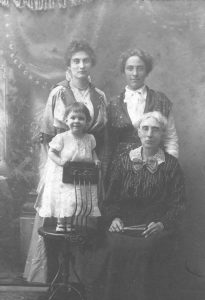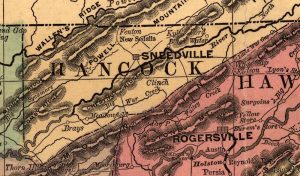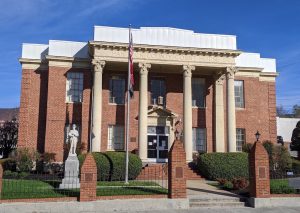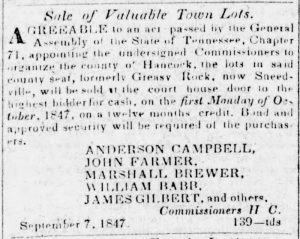
Four generations of Melungeon females from Tennessee’s
Ramey family (ca. 1915)
PHOTO: Elizabeth C. Hirschman
This county, along with parts of neighboring Virginia, is associated with one of the mysteries of American history.
There is a community (some describe it as a race) here known as the Melungeons. People have for a long time been trying to figure out who the Melungeons are and from where they came. Based on a combination of DNA testing, legend and appearance, many Melungeons appear to be traceable to north Africa and/or southern Europe.
There is some evidence that Melungeons were here before white settlers began migrating west of the Appalachian mountains in the late 1700s. Assuming this is true, no one knows for certain how the Melungeons got here. Among the theories is that they are the descendants of people who established a now-forgotten colony, or that they are the descendants of Portugese slaves who escaped from Hernando de Soto’s army.
Until recently, it was taboo to even talk about Melungeons (throughout history they have been subject to racial discrimination). But in recent years people have become more proud of their Melungeon ancestory and have begun to celebrate it. There is even a website for the Melungeon Heritage Association!
Here’s another story about Hancock County: Lawyers, as you know, are people who argue in court and conduct complicated legal transactions. They generally get paid well. In fact, you don’t need to go any further than Hancock County for evidence that lawyers are well paid.
In 1844 citizens of this part of Tennessee employed Knoxville lawyer W. H. Sneed to try to get this county created from parts of Hawkins and Claiborne counties. It took two acts of the legislature and a case that went all the way to the Tennessee Supreme Court to get the county formed.
The commissioners decided to put the county seat near a large rock on the Clinch River called Greasy Rock, where Native Americans and longhunters reportedly cleaned game. But they wanted a name other than Greasy Rock.
So why did they decide to name the county seat Sneedville? Because the lawyer who did much of the work was named Sneed!




